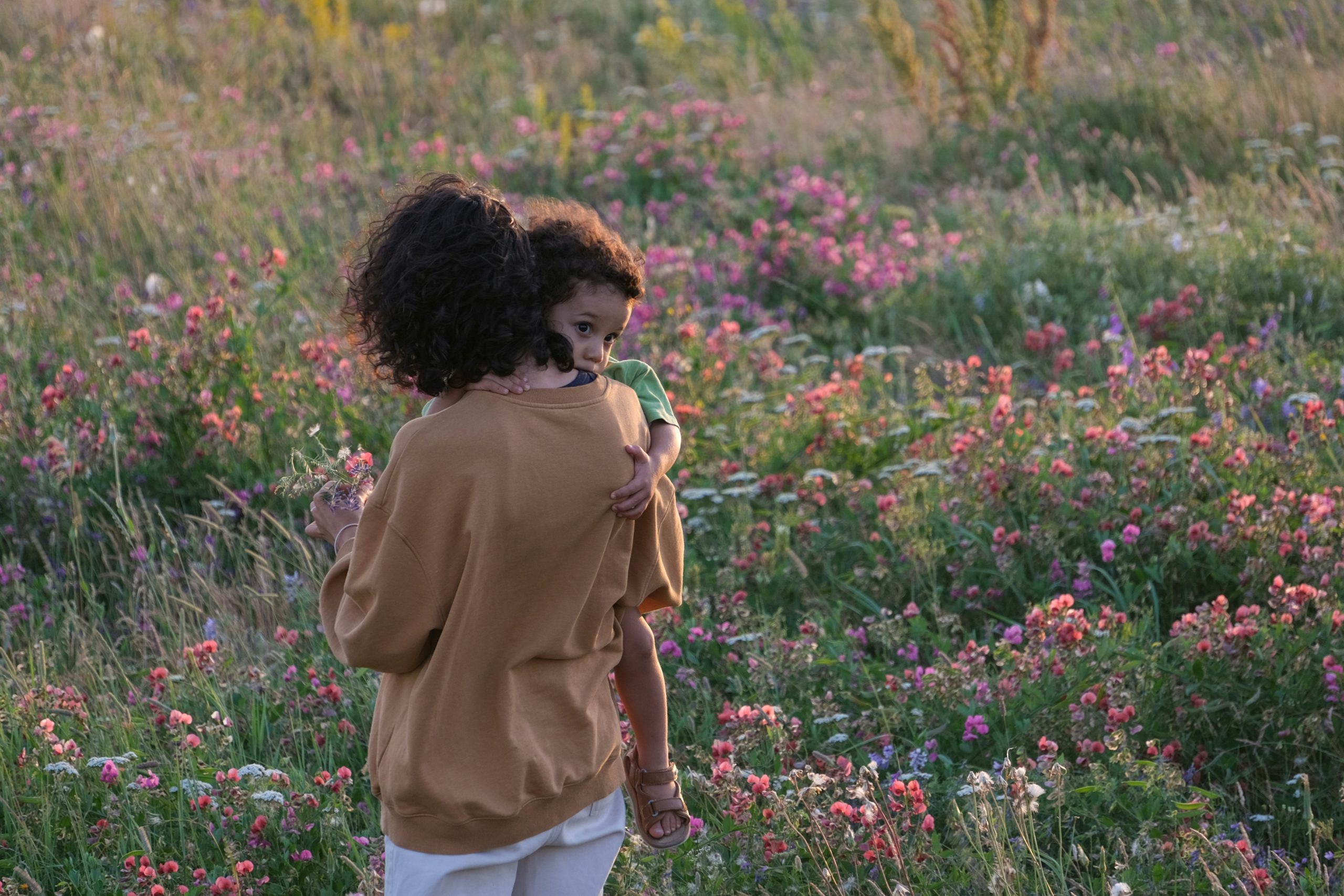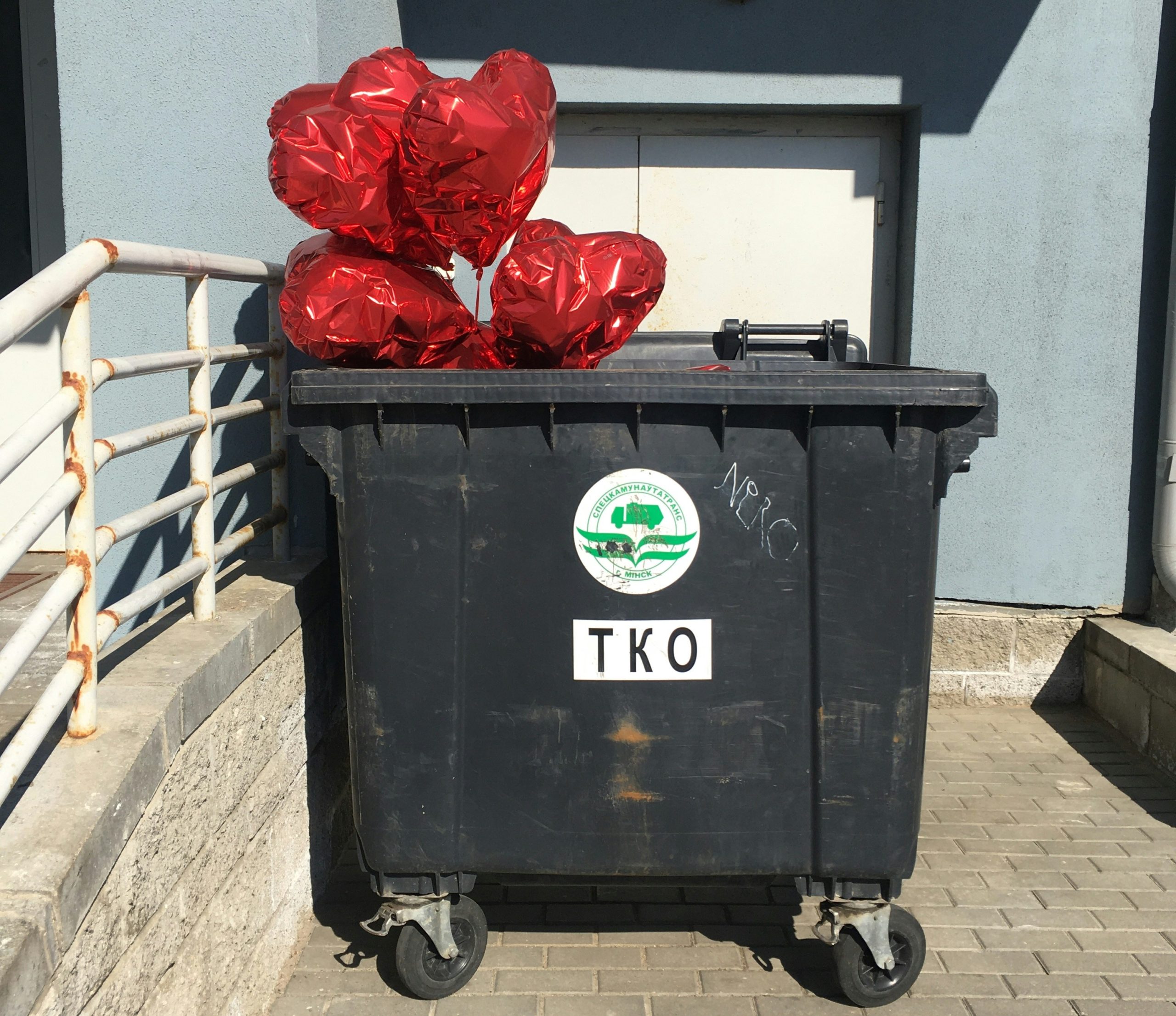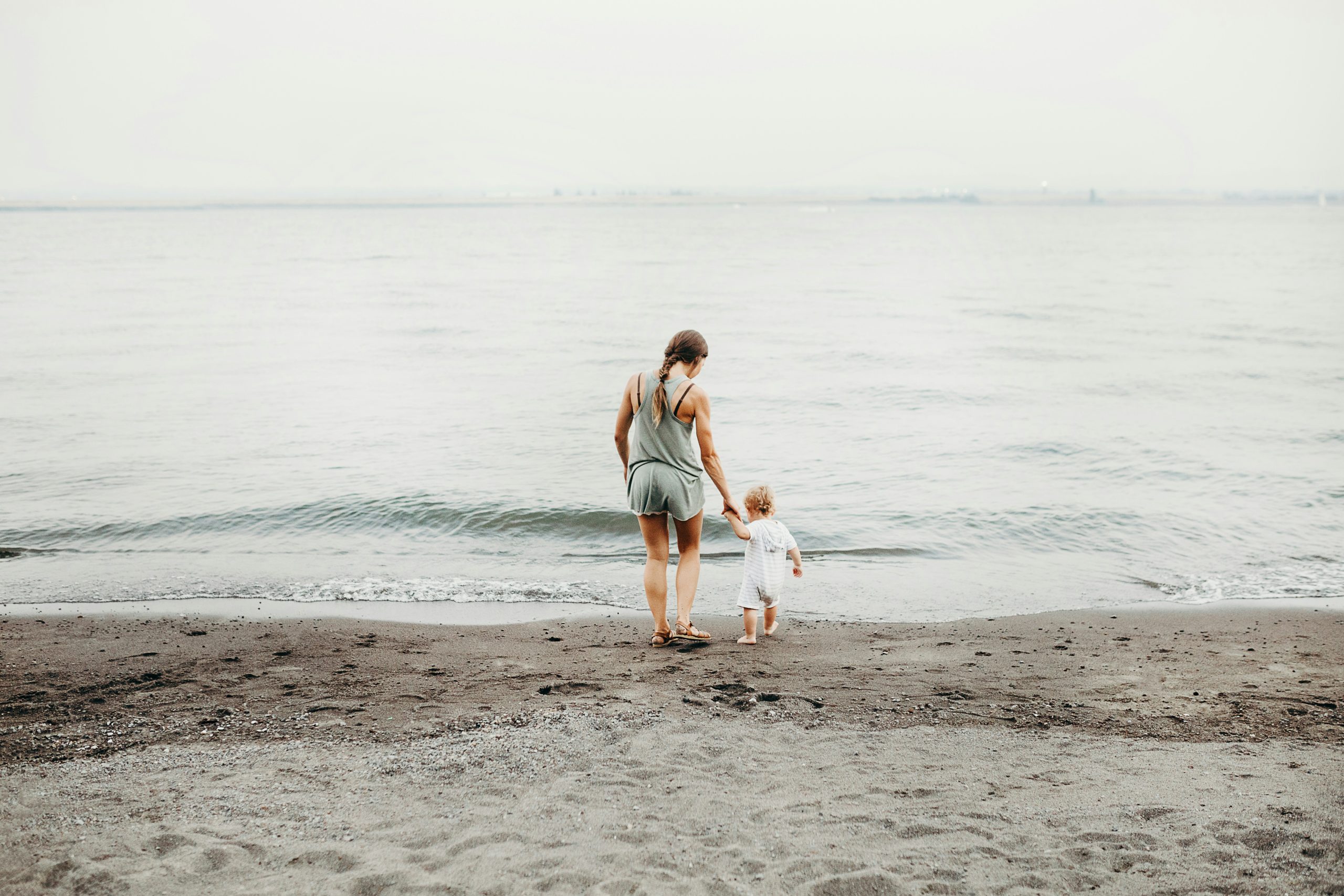interviews
Writing About Motherhood is a Portal Experience

I met Anna Prushinskaya in 2009, when we were classmates at Brooklyn College’s MFA program. I immediately fell in love with her writing, which is intense, precise, and lyrical. The next year, I began to work alongside her here, for Electric Literature—in the olden days it was still a print quarterly and the online presence was a blog called The Outlet. Working together, I felt annoyed at her, because not only did she have time to get all our coursework done, she was also quick and on top of things with her editing duties — and still found time to regularly attend yoga classes. In truth, I admired her passion, efficiency, and focus.
These traits show themselves in her first book, A Woman is a Woman Until She is a Mother, an essay collection that was published by MG Press earlier this month. The focus of the book is, as you might guess, motherhood, but the compiled essays are about much more than that: the act of creating something, the act of defining ourselves in the world, the act of reshaping an identity. It would be easy for a book about motherhood to lean toward the saccharine and sentimental, but Prushinskaya doesn’t go down that easy route. As a result, the essays are relatable not just for mothers, but for anyone who’s ever had to redefine themselves.
Juliet Escoria: Pregnancy and motherhood are some of the most visceral and personal experiences a woman can go through. Did you feel it was a risk in making these experiences the focus of your book? Was there anything you wanted to avoid while writing it?
Anna Prushinskaya: Definitely, this book feels risky because I don’t necessarily like to reveal deeply personal things to the world. But when I bring this issue up to people, I am usually reminded that this vulnerable information is what makes books good.
JE: I remember you feeling reticent about writing about your son because he has no say in the matter, and also because to be a parent is to be vulnerable. An essay of yours that originally appeared in The Atlantic and mentions your son, “The Quantified Baby,” received some nasty and judgmental comments upon publication. Did that experience make you approach writing about being a mother and woman in a different way?
AP: Right now, I am thinking about this question in the context of the current heightened awareness of sexual assault, harassment, and rape culture. The title of the book is A Woman Is A Woman Until She Is A Mother in part because I was thinking about the categories of ‘woman’ that I have contended with in my life — motherhood being one of them — the broader implications of those categories, and about the power of a woman’s story. I keep this in mind when I review reactions to my writing, but being aware of that doesn’t change the fact that I still have work to do when it comes to nasty comments and how I process them.
JE: In between beginning and publishing this book, you had a second son. Does having another child change your perspective on being a mother in any way, or your sense of identity?
AP: It has been interesting to reread the book as part of the publishing process after having my second son. I added an afterword, the upshot of which is that my second son has made me a different mother. I feel like I knew abstractly that things would continue to change and develop, both how I think of myself as a mother, how I think about motherhood more broadly, and my relationship with my kids, and all that. Someone said to me that each time a baby is born, a new family is born, and I think that has also been true for me in that I felt re-born as a different mother.
Mother-Daughter Relations and Other Horror Stories
JE: I feel like as a society, we’ve gotten better at looking at women’s roles, and mother’s roles, and family rights — but obviously we still have a long way to go, considering that when you were working at a prestigious university, you had to pump in a storage closet. What are some frustrations or annoyances you’ve had to deal with since you’ve had your sons that you were surprised by?
AP: Ha! Yes, the storage closet and I have gotten to know each other well. Well, it’s hard for me to answer in terms of frustrations and annoyances because I think there is much more to it than simply frustrations and annoyances. This is not a revolutionary point, but to me we should be thinking about universal leave for parents, access to quality medical care for all, and better support for women’s options across the spectrum of choices related to reproductive health, whether that includes having children or not.
JE: What are some books that you feel are similar to your own, in either tone, approach, structure, subject matter?
AP: Recently Facebook served me up a picture of M Train by Patti Smith that I took two years ago, pretty soon after my first son was born. Her writing about creativity and motherhood resonated then, and now I am re-reading to see what it’s like two years later. To be honest, with school and little kids, I wish I had more time for other reading. My guilty pleasures that I have been revisiting in this particular climate include Pema Chodron’s Heart Advice for Difficult Times and some Jack Kornfield.
9 Stories About Family Conflict
JE: You and I went to school together, at Brooklyn College’s MFA fiction writing program. It’s now been six years since we graduated. What do you think that degree did for you, and didn’t do for you?
AP: I think the most valuable thing for me was to have the chance to live in New York City for a bit and to meet all you BC MFA writers. Right now I’m in the process of shifting directions professionally in a pretty significant way — I want to become a nurse. So, I can’t say that my MFA degree is directly contributing to my current professional life. I also still ask myself questions about the MFA in terms of student debt and degrees.
JE: That’s amazing — a lot of my English students are in the nursing. What made you want to switch? Do you know what type of nurse you want to be? And do you see any similarities between writing and nursing?
AP: I realized I had some passion for directly caring for people while I was working on a series of stories about the 1,4-dioxane pollution in the Ann Arbor area. I thought at the time that the best place for me to have impact might be to write these kinds of stories. But in talking with people who have been directly affected by this pollution, I realized I wanted to care for people directly. Does that make sense? It’s not an “aha” moment I can articulate very well, but it has changed my life pretty dramatically.
I’m just taking prerequisite courses right now, hoping to begin in a program sometime next year if I’m lucky. I’ve taken things like anatomy, physiology, pharmacology, etc., and have been learning a bit about the complexities of the body, both when things are working and when things are not working. (I’ve also been learning about this from fiction such as The Emperor of All Maladies). I don’t know what type of nurse I want to be. After thinking about birth and pregnancy as part of writing this book and having my kids, maybe something related to that. But what attracts me to nursing is that nurses hold space for people navigating all parts of life, and I have so much respect for that.
Writing and nursing — interesting question. Right now they seem like very different aspects of my life. For me, writing has felt very internal lately. Nursing feels the opposite. I have felt a growing urge to be of service more directly.
JE: The first essay in your collection, “Love Letter to Woody Plants,” talks about learning to identify plants in the woods around where you live in Ann Arbor. I got into the same thing this past summer where I live in West Virginia — I wanted to make some sense of the sea of green. It was interesting to notice how once I learned to tell the difference between plants, the woods and roadsides took on a whole other dimension. I see a connection to writing in that, the desire to give words to complicated ideas or feelings. Did you have a similar reaction to identifying plants? How did writing this book clarify your thoughts and feelings about your subject matter?
AP: I think the desire to identify plants was related to some aspect of what eventually led me down the path to considering nursing, actually. I think I wanted to be more grounded, and I thought that maybe learning the details of 300 plants or so would help with that. There is something about that degree of care in describing a plant, or in the context of a basic anatomy and physiology course, a bone or muscle, that anchors me to the moment.
Pregnancy, birth, and children have, for me, done the same thing. In a way, writing the book was a portal experience. I really felt like I could get through those months through writing, and I haven’t felt that same energy propelling me to write since then. Did the book clarify my thoughts? I think the book was the process of how I made my way through those experiences, not a clarification of them.









